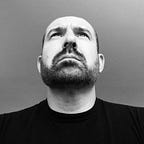The Social Solution
“There are only two industries that refer to their customers as ‘users’ —illegal drugs and software.” –Edward Tufte
I RECENTLY WATCHED the Netflix documentary The Social Dilemma. It was disturbing. I’d always known that social media sites like Facebook and Twitter were tracking everything we do on their platforms. I understood the Internet adage: “If the service is free, you’re the product.”
I also knew how the underlying machine-learning algorithms, the code running in the background, was learning more and more about each of us as you and I and billions of other users voluntarily fed it more and more data.
But it’s much worse than I imagined. Far worse. Like, end-of-civilization-as-we-know-it type worse.
Here’s some of the key points from the documentary:
- Persuasive design techniques like push notifications and the endless scroll of your newsfeed have created a dopamine-driven feedback loop that keeps you addicted to your devices.
- We are unwitting participants in the “attention extraction economy” in which social media companies monetize and profit from our attention and engagement.
- Social media companies engage in “surveillance capitalism”, which refers to the mass surveillance of our online activity and the commodification of this data for sale. Data collected on us is used to predict and influence our purchases, behaviors, and thoughts.
- Social media advertising gives anyone the ability to reach huge numbers of people with ease, giving bad actors the tools to sow unrest and fuel political divisions.
- Algorithms promote content that sparks outrage, hate, and amplifies biases.
We’ve constructed a daunting digital behemoth from silicon and precious metals mined from the earth, from computer code and binary bits of 0s and 1s flying around the globe at the speed of light, from artificially intelligent algorithms that work day and night to modify and shape our behavior.
You and I are mere Davids to these social media Goliaths. But unlike the Biblical David, we will not defeat this Goliath in a fight. There is only one solution to our social dilemma — disengagement.
“To free yourself, to be more authentic, to be less addicted, to be less manipulated, to be less paranoid…for all these marvelous reasons, delete your accounts,” writes Jaron Lanier in his 2018 book with the lengthy but provocative title Ten Arguments for Deleting Your Social Media Accounts Right Now.
Lanier is a Renaissance Man for the 21st century. He’s a computer scientist, composer, artist, and author who has written numerous articles and books about the impact of technology on human culture.
Ten Arguments reads like a manifesto and a self-help book got together and had a baby. I highly recommend it.
Here’s a summary of Lanier’s 10 arguments for why you should delete your social media accounts:
1) You are losing your free will.
We’re tracked, measured, and manipulated by algorithms gorging on our data. The goal is more and more engagement. “Addiction gradually turns you into a zombie. Zombies don’t have free will.”
2) Quitting social media is the most finely targeted way to resist the insanity of our times.
Your feeds are constantly tweaked to influence your behavior. Negative emotions are amplified. It’s a BUMMER machine: “Behaviors of Users Modified and Made into an Empire for Rent”.
3) Social media is making you an asshole.
If you’re an asshole, social media will amplify that. But even if you’re a nice person, social media will tug at “a nasty thing inside yourself, an insecurity, a sense of low self-esteem, a yearning to lash out, to swat someone down”.
4) Social media is undermining truth.
Fake news, fake viral videos, fake users (or real users being disingenuous), fake product reviews, fake conspiracy theories. The truth is washed away by this daily deluge of fakery.
5) Social media is making what you say meaningless.
Everything is mashed up and decontextualized online. “When context is surrendered to the platform, communication and culture become petty, shallow, predictable.”
6) Social media is destroying your capacity for empathy.
The world you see via your feed is invisible to the people who don’t understand you. You’re a foreigner to their world-view. An outsider. The “other”. This goes both ways.
7) Social media is making you unhappy.
It’s a stupid competition that you unwittingly signed up for when you signed up for your account and had zero followers and zero “likes”. Social media is architected to create social competition and anxiety. It taps into your brain’s deepest programming to keep you engaged and keep you addicted, even if that makes you unhappy.
8) Social media doesn’t want you to have economic dignity.
You provide social media companies with your data and they profit from it. You are a cog in their money-making machine.
9) Social media is making politics impossible.
If 2020 hasn’t proven this point, I don’t know what else will. No useful political interactions occur on social media platforms, especially among politicians.
10) Social media hates your soul.
A bit extravagant but to some degree engaging in social media does feel like a deal with the devil in which you sacrifice your free will and parts of yourself to “the platform”. Social media doesn’t hate your soul but it will eat it if you’re not wary.
Confession time: I have not deleted all of my social media accounts but I have vastly reduced my engagement. I’m happier, healthier, and more productive because of it.
It’s not any one thing in isolation that has made social media a scourge upon society. It’s the pernicious collective of all its moving parts and purposes.
Perhaps if we all disengaged from social media we would start behaving more like a nation of people rather than warring tribes of “users” led by whomever has risen to the level of being the biggest asshole.
